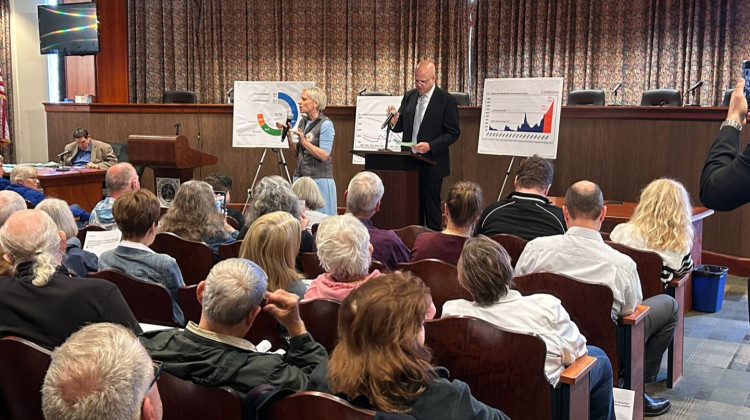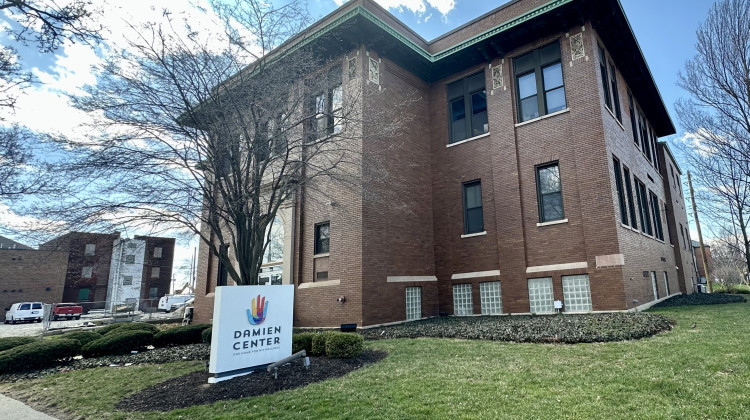
The Indiana Department of Natural resources says coyotes become more active during winter.
USFWS Mountain-Prairie/CC-BY-2.0There is an increase in coyote sightings around Indiana, but the Indiana Department of Natural Resources says seeing a coyote is not cause for concern.
Coyotes become more active during winter. Young coyotes are leaving their parents to find a new home, making them more visible. In January, coyotes will also be looking to breed, making them even more active.
Indiana Department of Natural Resources Furbearer Biologist Geriann Albers said they are common everywhere in the state, even in urban areas, including downtown Indianapolis, Fort Wayne, and South Bend.
“There’s nowhere in Indiana that you won’t see a coyote. Even seeing them during the day is not uncommon," Albers said. "They will forge for food even during daylight hours. It doesn’t mean they are sick. It just means they are hungry and they are out looking for a rabbit, squirrel or a mouse to try and eat.”
Albers said problems between coyotes and people are uncommon. She said people should proactively remove food and water sources and keep pets leashed or contained.
The DNR encourages people to discourage them by shouting, making loud noises, shaking a container of coins, using an air horn or whistle, spraying them with a hose, or throwing rocks or tennis balls, but never corner a coyote – always give the coyote a free escape route.
More information about coyotes, including factsheets and a webinar, are avaialble on the DNR website.
 DONATE
DONATE






 Support WFYI. We can't do it without you.
Support WFYI. We can't do it without you.